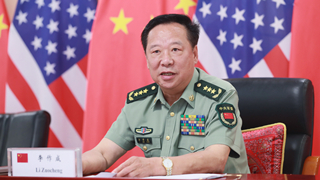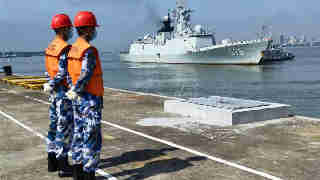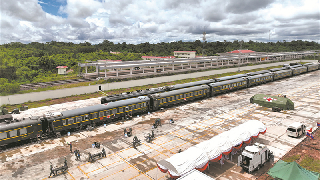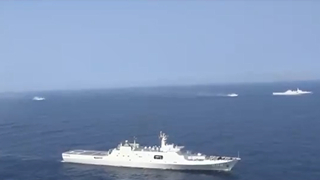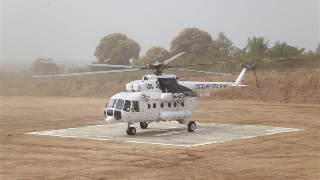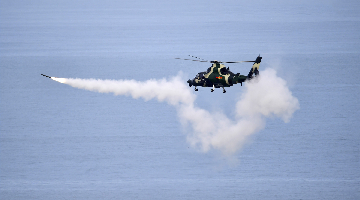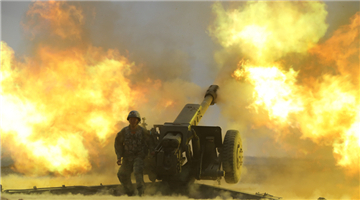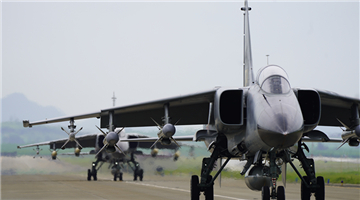Editor's note: To celebrate the 100th anniversary of the founding of the Communist Party of China, we are launching the “Outstanding CPC Members in the PLA” series, featuring the heroes and role models in the PLA who have made selfless dedication to defending the country, serving the people and building a strong military. The following is the 14th story of the series.
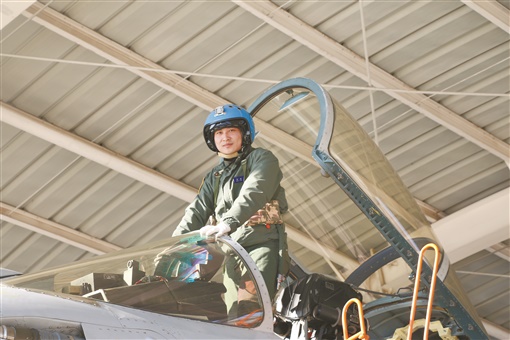
File photo of Zhang Chao
On the shore of China’s Bohai Bay lies a training ground with the huge roar of J-15 fighter jets resounding through the sky. On March 14, 2015, 28-year-old Zhang Chao started his way to become a carrier-based pilot here.
As a carrier-based fighter jet pilot exceptionally selected by the PLA Navy (PLAN) for hypernormal training, Zhang had to catch up with his comrades-in-arms of the same class who had begun the training in 2013 within one year. In other words, Zhang had to finish the training courses of over two years in just one year. If he made it, the new training program would be proven feasible, which would greatly speed up the training process for the PLA Navy's carrier-based fighter pilots.
Actually, the onerous training tasks with marked pressure were not a must for Zhang.
The original unit where Zhang Chao served was reluctant to let him go. As an ace pilot widely recognized by the unit, Zhang had flew eight types of fighter jets successively. He was the first to fly solo among the same batch of pilots under training for modified J-8 fighter jet and a homemade third-generation fighter jet.
Zhang himself also understood that choosing the carrier-based flight meant starting from scratch, and also greater risks. However, to fly higher and farther above the deep blue sea had always been a dream he strived to pursue. When he graduated from the aviation school, Zhang eagerly sought to serve a combat unit despite being invited by the school to stay as a flight instructor. Eventually, he was assigned to the unit where Wang Wei, a heroic pilot dubbed the “Guardian of the Sea and Air”, had been.
“Piloting carrier-based aircraft is the most dangerous flight in the world, are you willing to join us?” This was the first question the examiner asked Zhang during his interview. “I know it’s dangerous and risky, and I want to join”, replied Zhang.
With his flying dream, Zhang started the “afterburning mode” since the day he was assigned to a ship-borne aviation unit under the PLA Navy. Six months later, he catched up with the other teammates in training; ten months later, he piloted the J-15 fighter jet for the first time. All his subjects were assessed as excellent.
On April 27, 2016, there were three flying days left before Zhang completed the remaining training tasks to get qualified to board the carrier. Only by completing the take-off and landing training on an aircraft carrier and obtaining the qualification certification, can he become a true carrier-based fighter pilot.
On that day, Zhang and his comrades-in-arms would fly three sorties at low altitude and ultra-low altitude as scheduled. However, with increasing mist after the second sortie, the visibility on the sea was getting worse, so the third sortie was altered to simulated land-based landing instead.
At 12:59, Zhang began to land a J-15 carrier-borne fighter jet . His landing skills had always been excellent, with an evaluation score of 3.12 points (a score of 2.75 points means qualification) for the 93.24% flight sorties he had completed.
However, just as Zhang was landing his jet on a runway with a nearly perfect and accurate manner, and the jet was to taxi after touching the ground, a malfunction alarm sounded suddenly, and almost at the same time, the jet began to lose control, with a sharp rise of the nose and the abrupt fall of the jet at a pitch angle of over 80 degrees.
The live video and flight parameters showed that in just 4.4 seconds from the time the fault was alarmed at 12:59:11.6 to the ejecting at 12:59:16, Zhang had been committed to maneuvering the push rod to his best to force the J-15’s nose back down, trying best to save the aircraft.
However, due to the low altitude and poor angle, Zhang hit the grassland tens of meters away after ejecting from the aircraft, causing serious damage to his internal organs.
At 15:08, Zhang’s young heart stopped beating forever.
In 2016, China's Central Military Commission (CMC) posthumously bestowed Zhang Chao an honorary title and added him to the list of PLA model heroes whose portraits are widely hung in barracks of the PLA's company-level troop units in 2018.
Those who are concerned about the cause of China’s carrier-based flight will never forget this name ——
Navy Lieutenant Zhang Chao: male, born in Yueyang, Hunan Province in August 1986, enlisted in September 2004, and joined the Communist Party of China in May 2009, a first-class pilot assigned to a carrier-based aviation squadron under China’s PLA Navy.

